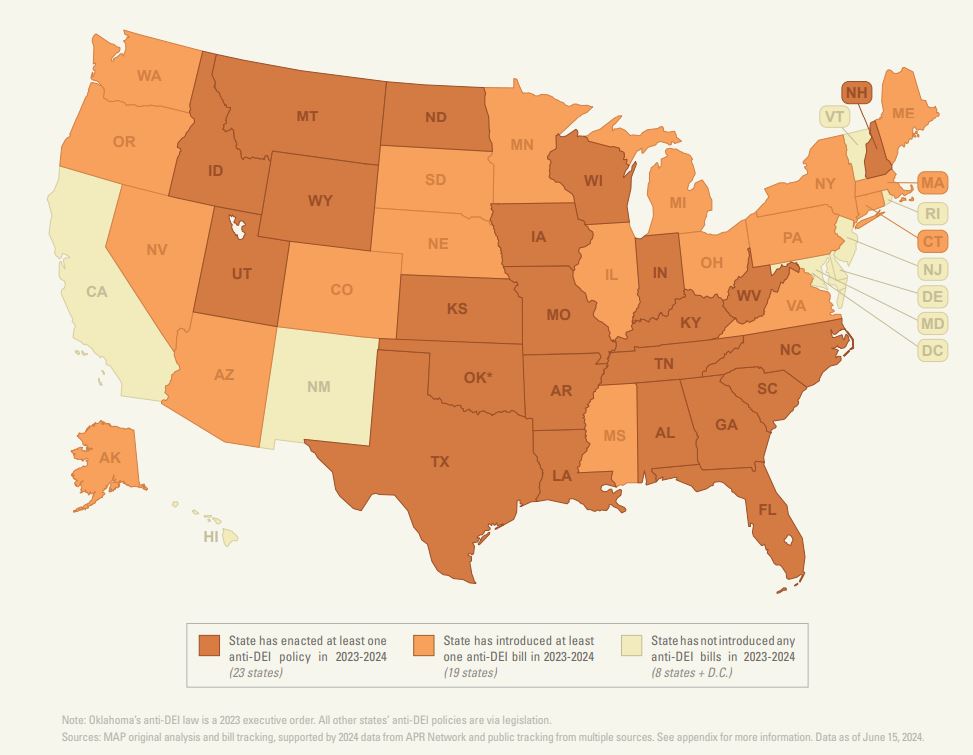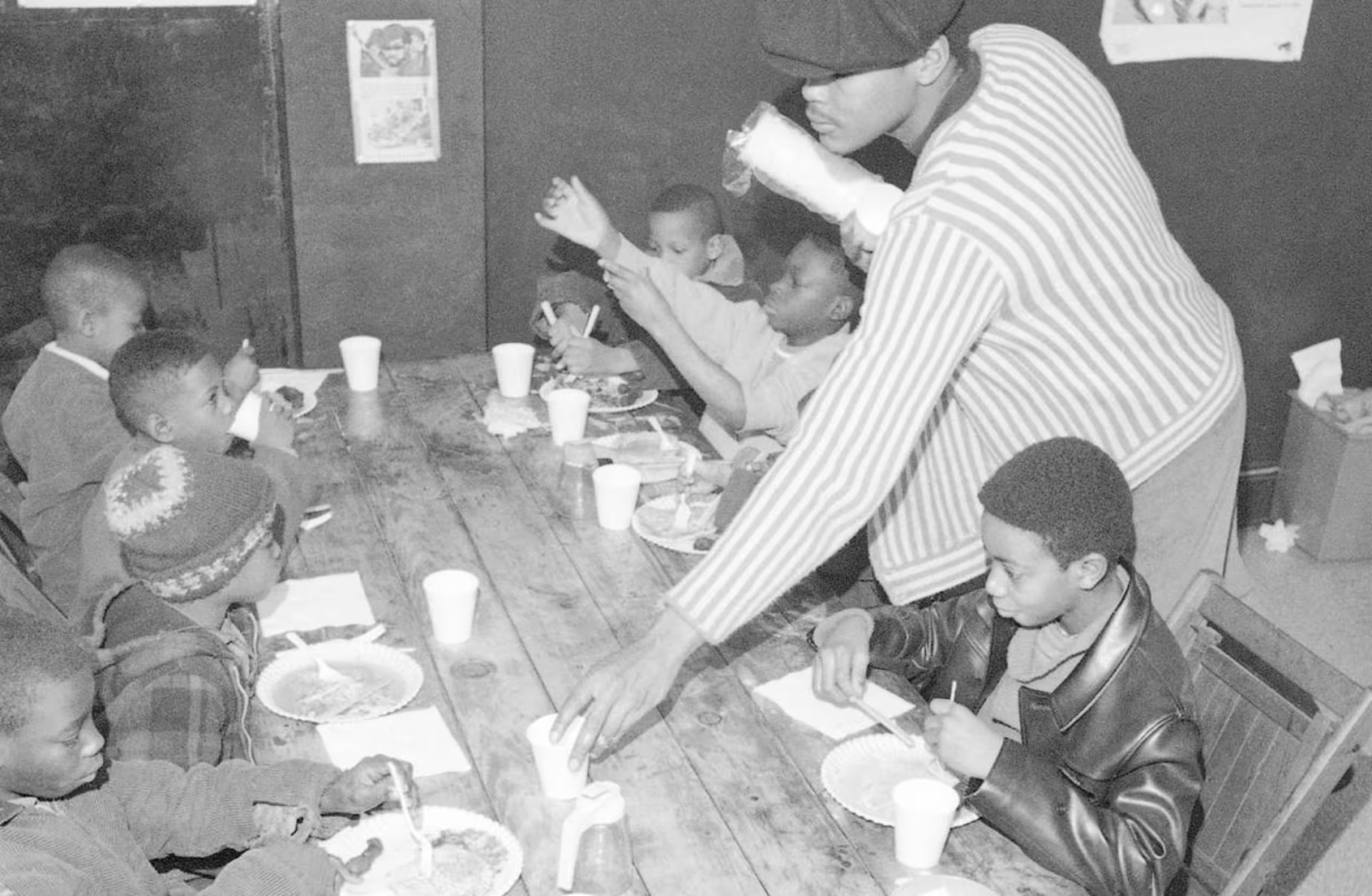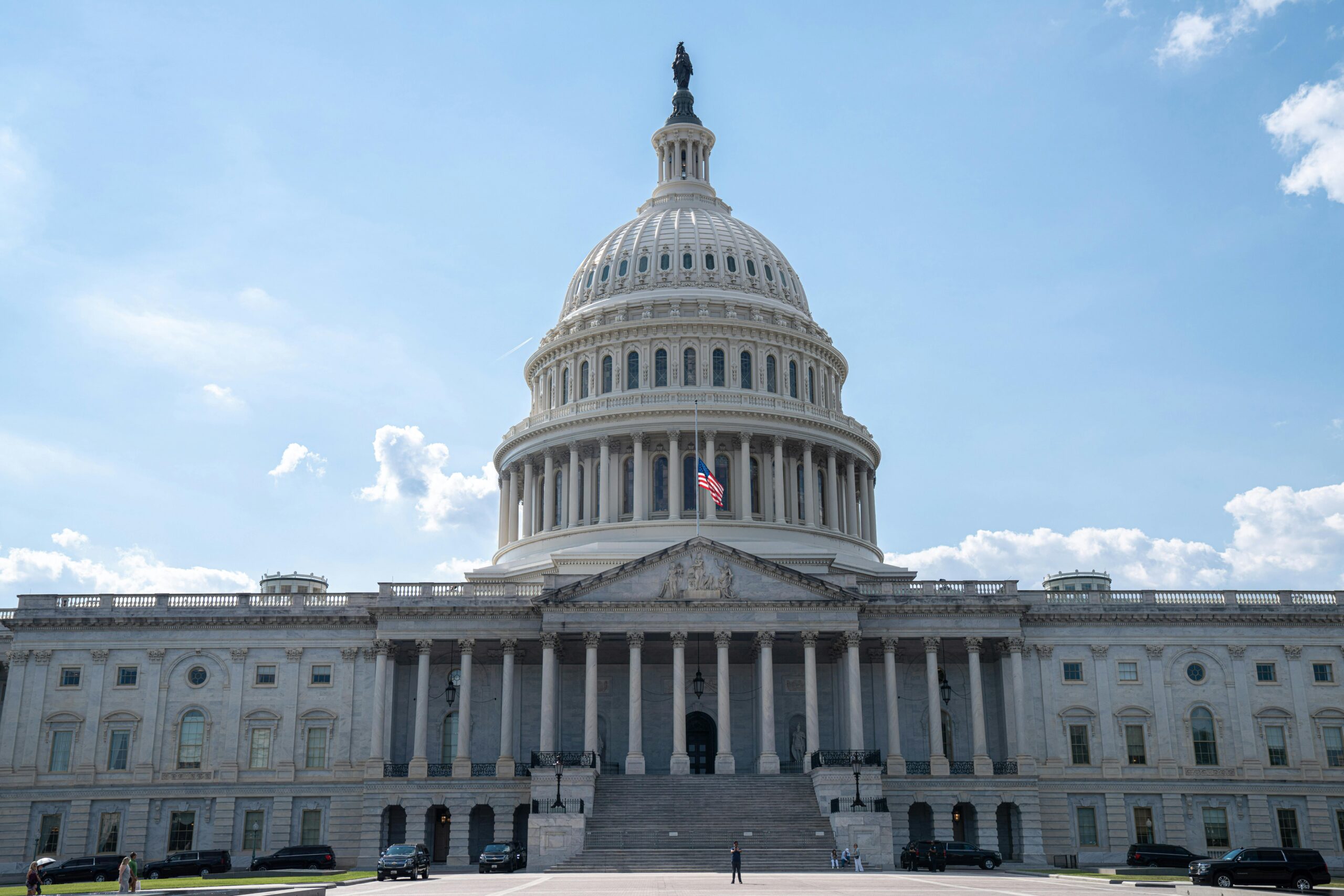No Retreat: Fighting for Equitable Policies in the Movement & Moment


Redlining Reigns Longer than the Trump Era
After taking office, the Trump Administration moved swiftly to dismantle the systems and structures that prop up our fragile democracy. Backed by a right-wing coalition, the administration is tearing down civil rights protections built through generations of resistance and directing militarized violence against immigrant communities and advocates. At this critical moment, the Trump-aligned forces are spreading a nationwide campaign to undermine equity and fortify authoritarian control. Their coordinated political and ideological attacks on historically disinvested and marginalized communities will have devastating consequences for everyone and threaten our nation’s public health, deepen racial disparities, and endanger our collective economic well-being.
But the Trump Administration’s reign is a symptom rather than a root cause of longstanding injustice. Historic and ongoing practices like redlining, bluelining, and racial capitalism have generationally shaped the lives of communities of color, working-class families, and other marginalized groups. These inequities are embedded in harmful government policies that restrict access to basic needs, lead to disparate health and economic outcomes, and leave communities exposed to harsh climate impacts.
Today, inequity is severely worsening under the Trump administration’s policies like its “Big Violent Budget Bill.” And unfortunately, this is not a new trend: since 2023, at least 42 states have introduced over 440 bills attacking Diversity, Equity, Inclusion, and Accessibility initiatives across the nation.

Despite the uphill battle for equity, policymakers, advocates, and organizers continue the fight to hold the line for our democracy and stand with our communities.
Now is the time to expand our toolbox, sharpen our strategies, and resist concessions that undermine our hard-fought progress. We must build narrative power and develop a common language that successfully advances equity in our society. We must hold decision-makers accountable to the real lives, stories, and experiences of people’s struggles. An equitable and just world is possible only when we are able to bridge a collective understanding of real conditions to shift power, resources, and governance for our communities to finally thrive.
Narrative Power as a Tool for Equity
The Trump administration relies on a machinery of misinformation and disinformation. Fighting for truth is direly needed to counter harmful and false narratives that imperil our communities. In order to effectively combat the Trump administration’s notorious narrative machine, communities must build narrative power rooted in truth and the real-lived experiences of our people.
Narratives reflect and shape our political consciousness and awareness. Political culture fosters our public opinion. Public opinion drives policy. By building narrative power with our communities based on a clear vision for justice and equity, we can disarm falsehoods, inspire collective action, and open the door for meaningful policy wins. Narrative power was never meant to replace policy work — but it prepares the ground for us to create equitable policies.
As author and activist Grace Lee Boggs reminds us, education is not an individualized endeavor, learning requires a sense of social responsibility, and truth will prevail through conflict. Our task together is to popularize the fight for equity and justice, establish a common equity language, and develop Greenlined policies that integrate genuine partnership between policymakers and community members directly affected by inequities to develop viable solutions that ultimately benefit us all.
Words That Win: Adapting Equity Language for Community Impact
Trump’s Executive Orders may be more political theater than lasting law, but the disruptive impacts are real. In this moment, when the administration is openly waging war against equity and DEI language, how we talk about equity matters.
Narrative power depends on language that is precise, inclusive, and legally defensible, while grounded in the needs and lived experiences of our communities.
Here are key ways to advance equity language for community impact — whether in policy, organizational messaging, journalism, and beyond:
| Best Practices | Examples |
|---|---|
| Build narrative power that advances racial, economic, gender, and climate justice. Track, combat, and neutralize misinformation, disinformation, and harmful narratives with counter narratives. | Based on the Disinfo Defense Toolkit, lead with shared values, name motivations behind misinformation and disinformation, deliver facts, and prime the audience to discern falsehoods. |
| Shift from explicit race-based descriptors to those that are race-conscious or race-neutral. This can retain benefits for racial and ethnic groups while maintaining legal defensibility. | Combine race-conscious data proxies, such as health and housing data, to identify disadvantaged communities and their needs, as shown by CalEnviroScreen 4.0. |
| Use a targeted universalism approach. Set a universal goal with strategies tailored to those most impacted. | Curb cuts designed for wheelchair users also benefit parents with strollers, travelers with suitcases, and seniors. |
| Reframe “diversity, equity, inclusion” to more precise outcomes rooted in shared values such as good governance, affordability, accessibility, fairness, public health and safety, and others. | “Reduce costs for American families.” “Equity is essential to democracy and good governance.” “Civil rights protect all Americans.” |
From Narrative Power to Transformative Systems Change
While narrative power shapes public consciousness, policymaking can institutionalize equity. At The Greenlining Institute, we foundationally define racial equity as transforming systems that harm people of color by expanding access to power, redistributing resources, and removing barriers to opportunity.
Our strategy — known as “Greenlining” — stands in direct opposition to redlining, a historical practice with lasting impacts that led to isolation and wrongful disinvestment of our communities. Greenlining essentially aims to transform systems and structures to concretely bring justice and equity for our communities in the long run.
Leveraging narrative power is crucial to how we generate support and political will for policies and programs that advance equity, such as community-driven initiatives that incorporate democratic governance and thereby shift power and resources for communities to thrive.
A Roadmap of Foundational to Transformative Equity Practices In Policy
Advancing equity in policymaking relies on a spectrum of equity approaches: from foundational to transformative.
- Foundational equity approaches: the first essential steps towards advancing equity, like codifying definitions of equity into statute or mandating race-conscious data tools that help track community needs.
- Transformative equity approaches: aim to shift power, dismantle unjust systems and structures, and drive long-term systems change.
Foundational equity approaches mitigate harm and lay the groundwork for equity by cultivating community capacity and infrastructure, while lowering barriers for disinvested communities to access resources and decision-making power. But foundational approaches are not sufficient on their own.
Transformative equity approaches work to address the root causes, rather than just the symptoms, of underlying social issues by providing solutions that dismantle unjust systems and structures that are designed to encourage rather than discourage inequity. Transformative equity is the last puzzle piece for true systems change: for equity to have holistic results, we must embed equity at the individual, institutional, and societal level.
Greenlining in policymaking means embedding equity at every stage from the vision, goal, and values of a policy; to the process described in a policy; to its outcomes; and the evaluation of its ongoing impacts based on both foundational and transformative equity approaches.
For instance, the Transformative Climate Communities Program (TCC), a program that depends on continued funding from CA’s Prop 4, upholds community-led solutions based on a collaborative governance structure that centers community ownership. TCC leads to transformative results, as communities execute their visions to transform their neighborhoods and generate multi-sectoral benefits, including cleaner air, more job opportunities, denser affordable housing near public transit, expanded solar-installations, and more.
Foundationally, communities should co-create the policies that affect them and lead transformative changes. Take the Black Panthers’ Free Breakfast for School Children Program in Oakland. The Black Panthers Party was born out of a desire to end systemic violence against Black Americans. Later, the party created social programs, which inspired the establishment of free federal breakfast programs that now feed over 14.57 million American children today. When policy makers and communities collaborate to share ownership of resources, decision-making, and implementation, transformative outcomes result, and they secure long-term, exponential, and intergenerational benefits for everyone.

Transformations for a Greenlined Economy and a Just Future
Greenlining policies is still possible right now — and even more urgent in the face of the Trump administration’s disinformation and scare tactics.
To support the development of equitable policies at this critical time, Greenlining offers our Embedding Equity Into Policy Toolkit as a resource for policymakers and changemakers. This August, Greenlining will present the Toolkit in an interactive workshop for more than 170 state legislators from across the nation at the 2025 National Forum hosted by the National Caucus of Environmental Legislators.
Despite real political constraints on advancing equity, the toolkit offers bold and practical strategies, from foundational to transformative, that are tailored to diverse contexts to help policymakers remain adaptive but committed to delivering tangible equity outcomes, so that our communities can live healthy lives, benefit from economic security, and secure opportunity for upward mobility. Our Embedding Equity Into Policy Toolkit equips leaders to remain bold but strategic when advancing equity for our communities.
Moving Equity Forward with Courage and Commitment
Black Panther, Fred Hampton, said “You can run a freedom fighter around the country, but you can’t run freedom fighting around the country.” Despite federal chaos, equity remains legally viable and morally urgent. Policies must center community needs, democratize resources, and deliver measurable justice.
Now is the time to defend vulnerable communities and advance policies that are not just equitable in intent but transformative in impact. The stakes are high, but so is the opportunity — to build systems that are inclusive, regenerative, and truly just. Equipped with a common language and vision for equity, policies possess immense transformative potential for our communities in need.
When we shed light on truth, act on our values, and move together, the momentum is palpable: when we fight for equitable policies in the movement and moment, advancing equity will help pave the way for a Just Future for all.




